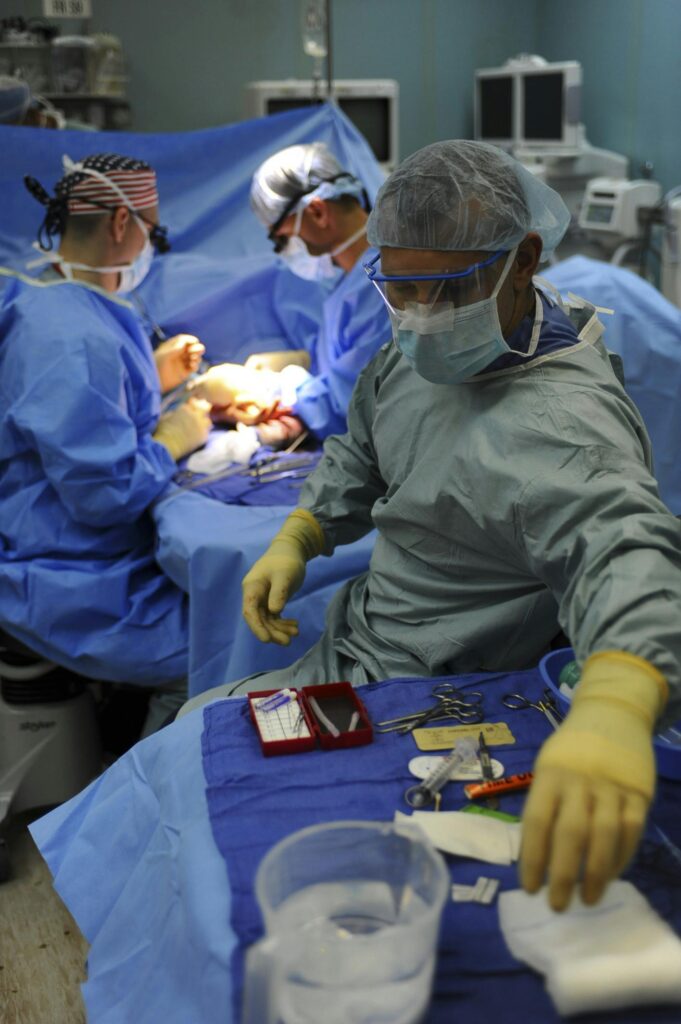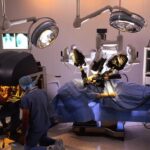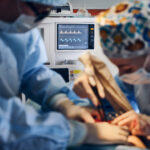Coronary Artery Bypass Graft (CABG) surgery, commonly known as bypass surgery, is a critical procedure used to treat severe coronary artery disease (CAD). The surgery helps restore normal blood flow and improve heart function which reduces the risk of heart attacks. With cardiovascular illnesses being the leading cause of death globally it is important to understand CABG bypass surgery. This blog focuses on the intricacies of CABG surgery while also exploring why choosing a cardiac surgeon in India can be a beneficial option for patients seeking high-quality care.
Understanding CABG Bypass Surgery
The coronary artery bypass is caused by fatty buildup from the walls of arteries which limits supply of oxygen rich blood. The CABG bypass surgery is done to bypass blocked and narrow arteries which supply blood to the heart muscle. The procedure of creating an alternative pathway for blood created from another part of the patient’s body. This allows the blood to reach heart muscle unhindered bypassing the obstructed artery. If the blood supply to your heart muscle continues to decrease as a result of increasing blockage of a coronary artery, you may have a heart attack.
Symptoms of Coronary Artery Disease
- Chest pain
- Fatigue (severe tiredness)
- Palpitations
- Abnormal heart rhythms
- Shortness of breath
- Swelling in the hands and feet
- Indigestion
The primary goal of CABG surgery is to alleviate symptoms of coronary artery disease, such as chest pain (angina), shortness of breath, and fatigue. It also aims to:
- Reduce the risk of heart attacks: By improving blood flow to the heart muscle.
- Improve heart function: By ensuring the heart receives enough oxygen-rich blood.
- Enhance the quality of life: By reducing symptoms that interfere with daily activities.
- Increase survival rates: Especially in patients with severe coronary artery disease.
Indications for CABG Surgery
CABG bypass surgery is recommended for patients with severe coronary artery disease. Specific indications include:
- Multiple blocked coronary arteries: When two or more major coronary arteries are significantly blocked.
- Left main coronary artery disease: Blockage in the main artery supplying blood to the left side of the heart.
- Failed medical management: When medications and lifestyle changes are insufficient to control symptoms.
- Severe angina: Persistent chest pain that doesn’t respond to other treatments.
Post-heart attack: To restore blood flow to the heart muscle and prevent further damag
What Is The Coronary Bypass Surgery Procedure?
Preoperative Preparation
Before undergoing CABG bypass surgery, patients undergo thorough medical evaluations, including blood tests, electrocardiograms (ECGs), echocardiograms, and coronary angiography. These tests help the cardiac surgeon assess the extent of coronary artery disease and plan the surgery.
The Surgical Process
Anesthesia: The patient is placed under general anesthesia to ensure they remain unconscious and pain-free during the procedure.
- Incision: The surgeon makes a vertical incision down the center of the chest to access the heart.
- Harvesting the Grafts: Healthy blood vessels (grafts) are harvested from the patient’s body. Common sources include the internal mammary artery (chest), saphenous vein (leg), and radial artery (arm).
- Cardiopulmonary Bypass: In many cases, a heart-lung machine is used to circulate and oxygenate the blood while the heart is stopped.
- Attaching the Grafts: The surgeon attaches one end of the graft to the aorta and the other end to the coronary artery, bypassing the blockage.
- Restarting the Heart: The heart is restarted, and the patient is taken off the heart-lung machine.
Closing the Incision: The chest incision is closed, and the patient is moved to the intensive care unit (ICU) for monitoring.
Postoperative Care and Recovery
Immediate Postoperative Care : After CABG bypass surgery, patients are closely monitored in the ICU. Key aspects of immediate postoperative care include:
Vital signs monitoring: Continuous monitoring of heart rate, blood pressure, and oxygen levels.
- Pain management: Administration of pain relief medications to ensure comfort.
- Preventing infections: Careful monitoring and hygiene practices to prevent surgical site infections.
Respiratory support: Use of ventilators initially, followed by breathing exercises to improve lung function.
Recovery at Home Recovery from CABG surgery can take several weeks to months. Important steps during the recovery period include:
- Medications: Taking prescribed medications to manage pain, prevent blood clots, and control blood pressure and cholesterol.
- Follow-up appointments: Regular visits to the cardiac surgeon for monitoring progress and addressing any concerns.
- Lifestyle changes: Adopting a heart-healthy diet, quitting smoking, and managing stress.
Cardiac rehabilitation: Participating in a structured rehabilitation program to improve cardiovascular health and build strength.
Risks and Complications of CABG Surgery
While CABG bypass surgery is generally safe, it carries some risks and potential complications, including:
- Infections: At the incision site or within the chest.
- Bleeding: Excessive bleeding requiring additional intervention.
- Heart rhythm problems: Such as atrial fibrillation.
- Stroke: Due to blood clots or reduced blood flow to the brain.
- Kidney problems: Particularly in patients with preexisting kidney conditions.
Discussing these risks with a cardiac surgeon helps in understanding the potential outcomes and preparing adequately.
Tips To Choose The Best Cardiac Surgeon in India
India has emerged as a leading destination for cardiac surgery, including CABG bypass surgery. Whether you’re considering CABG surgery for yourself or a loved one, being well-informed and selecting the right healthcare provider can make a significant difference in the outcome and overall experience.Several factors contribute to this :
Expertise and Experience
Best cardiac surgeon in India are highly trained and experienced, often having completed rigorous training programs and fellowships in internationally renowned institutions.
State-of-the-Art Facilities
These hospitals adhere to international standards of care and provide a conducive environment for successful surgical outcomes.
Cost-Effectiveness
One of the significant advantages of choosing a cardiac surgeon in India is the cost-effectiveness. This affordability makes it accessible to a broader range of patients.
Comprehensive Care
Indian hospitals offer comprehensive care packages that include preoperative evaluations, surgery, postoperative care, and rehabilitation.
Patient-Centered Approach
Multilingual staff, personalized treatment plans, and a compassionate approach contribute to a positive patient experience.
Give Your Heart The Best Care With Dr Udgeath Dhir
The lifesaving procedure of CABG bypass surgery is helpful for individuals with severe coronary artery disease. Being well versed with the surgery and its benefits as well as the recovery process is a crucial aspect for the patients as well as their families. By choosing Dr Udhgeath Dhir , best cardiac surgeon in India , patients get access to advanced medical facilities, premium care as well as cost effective options. He decides the finest approach after carefully checking your condition.
Dr Udgeath Dhir’s expertise in cardiac surgery, combined with its world-class facilities and patient-centered care, makes it an excellent choice for those seeking treatment for coronary artery disease. By opting for CABG bypass surgery in India, patients can look forward to a healthier heart and an improved quality of life. Schedule a consultation with Dr. Udgeath Dhir, the finest CABG cardiac surgeon in Gurugram.




